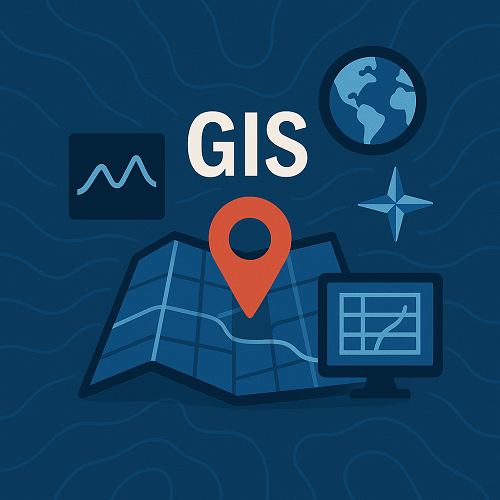Revolutionize Your Industry with GIS Technology: Incredible Applications You Can’t Afford to Miss
In recent years, GIS technology has revolutionized various industries, transforming businesses by giving them a competitive edge. GIS, which stands for Geographic Information System, is a computer system capable of capturing, storing, analyzing, and displaying geographic data. This data is processed into meaningful information that helps decision-makers make informed choices. GIS technology is becoming increasingly popular due to its versatility and power, providing exceptional capabilities that every business needs to consider.
One of the most significant applications of GIS is in the field of land management. The technology is used by construction firms, real estate professionals, and government agencies to map out land parcels, track land use, and manage leasing. GIS technology makes it easier to identify unused land and determine its value. It can also be used to develop spatial plans and ensure zoning regulations are being met. Ultimately, GIS can help land management professionals make informed decisions regarding land use and development.
Another great application of GIS is in the environmental sector. This technology can be used to track the location and spread of polluting substances in the environment, helping environmental officials identify pollution sources and plan clean-up efforts. Additionally, GIS is used to track wildlife patterns and help conservationists ensure natural resources are being protected.
GIS technology has also transformed supply chain management. Companies can use this technology to visualize the movement of goods along the supply chain, identifying bottlenecks and inefficiencies. GIS technology can help organizations improve logistics, cut costs, and improve customer satisfaction, making it a crucial tool for businesses looking to operate more efficiently.
GIS technology can also be particularly useful in the healthcare industry. Hospitals can use GIS to map out patient demographics, identify locations with high risk of diseases, and determine where health care facilities should be located. Public health officials can also use GIS to track disease outbreaks, monitor the spread of chronic diseases, and plan emergency response efforts.
In conclusion, Geographic Information System technology is a game-changer for businesses and organizations seeking to gain a competitive edge. The versatility and power of GIS provide incredible possibilities for businesses looking to improve their land management practices, environmental sustainability, supply chain management, and healthcare delivery. GIS technology helps companies make informed decisions, which ultimately saves time, money and boosts productivity.
FAQs
1. What is GIS technology, and how does it work?
GIS is a computer system for capturing, storing, analyzing, and manipulating geographic data, which is then processed into meaningful information.
2. What are the primary applications of GIS technology?
GIS technology can be applied in various industries, including land management, environmental protection, supply chain management, and healthcare delivery.
3. How does GIS technology improve supply chain management efficiency?
GIS technology enables businesses to visualize the movement of goods along the supply chain, identify bottlenecks, inefficiencies, and improve logistics, ultimately cutting costs and improving customer satisfaction.
4. What are the benefits of using GIS technology in healthcare?
GIS technology helps hospitals map out patient demographics, determine locations with high disease prevalence, and track disease outbreaks, helping public health officials monitor chronic diseases and plan emergency response efforts.
5. Can GIS technology be customized to fit specific business needs?
Yes, GIS technology can be tailored to meet the unique needs of businesses across various industries. Its versatility and power make it an exceptional choice for businesses seeking to gain a competitive edge.
